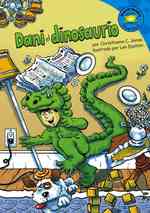Full Description
Although settler colonialism is a deeply entrenched structural problem, Indigenous peoples have always resisted it and sought to protect their land, sovereignty, and treaties. Some settlers have aimed to support Indigenous peoples in these struggles. This book examines what happens when settlers engage with and attempt to transform settler colonial systems.
What does 'decolonizing' action look like? What roles can settlers play? What challenges, complexities, and barriers arise? And what opportunities and possibilities emerge? The authors emphasize the need for settlers to develop long-term relationships of accountability with Indigenous peoples and the land, participate in meaningful dialogue, and respect Indigenous laws and jurisdiction. Writing from multiple disciplinary lenses, and focusing on diverse research settings, from Turtle Island (North America) to Palestine, the authors show that transforming settler colonial relations and consciousness is an ongoing, iterative, and unsettling process that occurs through social justice-focused action, critical self-reflection, and dynamic-yet-committed relationships with Indigenous peoples.
This book was originally published as a special issue of Settler Colonial Studies.
Contents
Introduction: Pathways of settler decolonization; 1. Complicated pathways: settler Canadians learning to re/frame themselves and their relationships with Indigenous peoples; 2. Tracing the spirals of unsettlement: Euro-Canadian narratives of coming to grips with Indigenous sovereignty, title, and rights; 3. 'A lot of catching up': knowledge gaps and emotions in the development of a tactical collective identity among students participating in solidarity with the Winnemem Wintu; 4. Decolonizing solidarity: cultivating relationships of discomfort; 5. Imagining autonomy on stolen land: settler colonialism, anarchism and the possibilities of decolonization?; 6. Anti-colonial methodologies and practices for settler colonial studies






